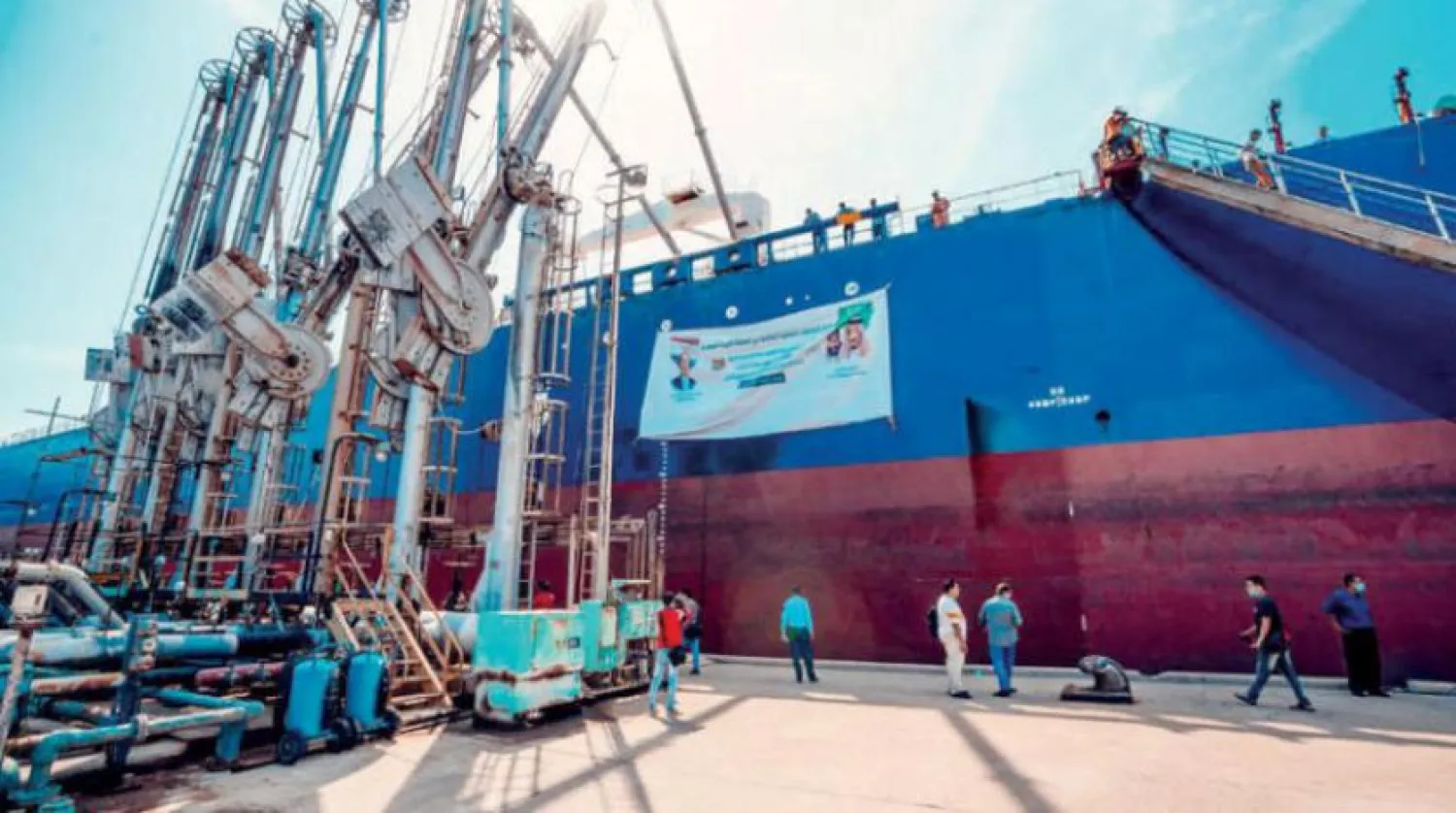The first batch of the Saudi oil derivatives sent to Yemen, through the Saudi Development and Reconstruction Program for Yemen (SDRPY), arrived at Aden port on Saturday.
The shipment was received by the Yemeni Minister of Electricity and Energy Anwar Kalashat, Aden governor Ahmed Lamas, and other officials.
The total amount of the shipment stands at 909,591 metric tons of diesel and 351,304 metric tons of mazut, in support of achieving economic and living stability for the Yemeni people. It is expected to operate more than 80 Yemeni stations, at a total cost of $422 million.
The shipment is part of Saudi Arabia’s ongoing support to Yemen, a reflection of the strong ties between the two countries and coinciding with the beginning of the summer where the energy consumption peaks.
The Yemeni Minister of Electricity said this shipment will play an important role for the Yemeni people and will give the government a great opportunity to work towards developing future solutions to the electricity crisis.
“We hope that we see the desired goals of this grant with the cooperation of all parties to end the electricity crisis to lead to the recovery of the sector and the development of reforms."
Yemen’s Minister of Information, Culture and Tourism, Moammar al-Eryani said that the continuous Saudi support for Yemen reflects the strength of brotherly relations between the two neighboring countries.
Eryani tweeted that the grant of oil derivatives is an extension of the Saudi constructive role in Yemen, and an embodiment of fraternal relations between the two countries and brotherly peoples.
Governor Lamas affirmed that this initiative would support stability and development in Aden and all Yemeni governorates.
For his part, Director of the SDRPY Petroleum Derivatives Project Salman al-Hazimi affirmed that the SDRPY and the Yemeni government have developed integrated governance mechanisms for oil derivatives.
Hazimi explained that the Yemeni government has formed a supervisory, control, and follow-up committee consisting of all relevant Yemeni ministries and authorities, and civil society organizations, in addition to SDRPY and an international neutral inspection company, as well as the media.
The committee will act under an executive program and a control mechanism ensuring that the grant reaches the beneficiary stations with high reliability and integrity, allowing all concerned parties to monitor all data of the grant on a platform to be launched soon.
The grant will actively contribute to the recovery of economic and social life and will help the Yemeni government direct its expenditures to support the civil employees’ salaries as well as the provision of basic services.
It will also contribute to solving the problem of frequent power outages that affect daily living, as well as raising the performance of vital sectors' services in Yemen.
The Saudi support will have a positive impact on the economic, health, educational, and service fields.
Saudi Arabia previously provided $4.2 billion oil derivatives grants which had an economic impact in reducing the burdens on the Yemeni government’s budget and could help the Central Bank of Yemen in obtaining hard currency in purchasing oil derivatives from the global markets.
The Saudi support also helped to stabilize the exchange rate of the Yemeni riyal and fuel prices against the US dollar, in addition to raising the productivity of the Yemeni citizen.









